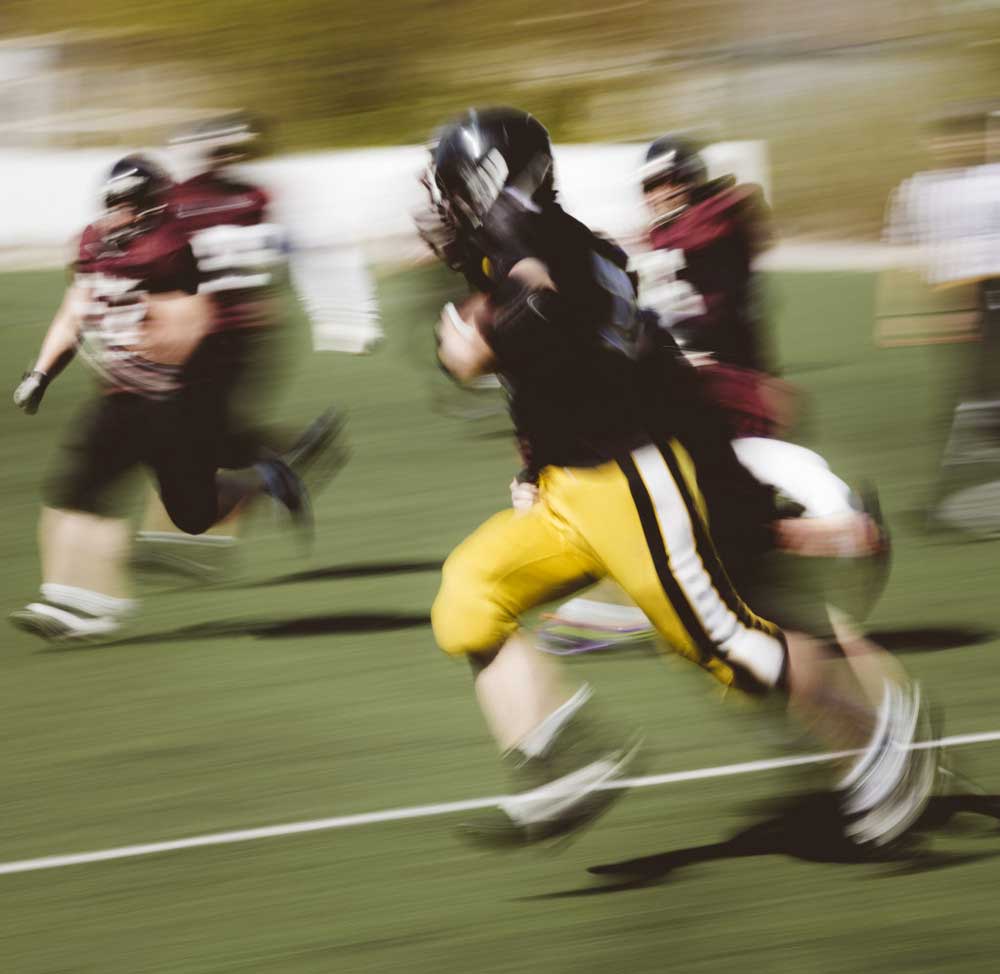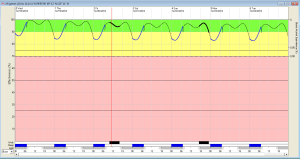Sleep, football players, and the NFL Scouting Combine’s 40-yard dash

In 2010, Stanford University sleep and performance researcher, Cheri Mah, studied the effects of sleep extension on collegiate football players and determined that after several weeks of extending their time in bed from 6-9 hours per night (average) to 10 hours per night, the group was able to complete their timed 40-yard dash 2.1% faster. Such a small percentage increase in performance for an event that is mere seconds long may not seem like a significant improvement, but we were curious what it might mean for the college athletes participating in this week’s NFL Scouting Combine:
At the 2013 Combine, the fastest recorded 40-yard dash was completed by Marquise Goodwin in 4.27 seconds.
What if Marquise Goodwin ordinarily spent 6-9 hours in bed and maintained that same routine right up to the 2013 NFL Combine?
And what if every other participating college football player also routinely spent 6-9 hours in bed and in the 6 weeks leading up to the 2013 combine, changed nothing about their training or routines other than extending their time in bed to 10 hours per night?
What would a 2.1% increase in sprint performance mean to this group of the NFL hopefuls? For the top competitors, this improvement would potentially knock Goodwin from 1st for 7th place in the 40-yard dash. But, even more significantly, for the players sitting lower in the rankings, a 2.1% increase in performance for the 40-yard dash could mean a jump from 100th place to 45th place.
As for first place Marquise Goodwin, if we were to let him enjoy the same extended sleep period as the rest of his competitors, a 2.1% increase in performance would not only allow him to maintain his first place finish, but potentially give him a record breaking performance as well. The 40-yard dash record at the combine is 4.24 seconds (since electronic timing was introduced in 1999) held by Rondel Menedez (1999) and Chris Johnson (2008) – Marquise’s 2.1% increase would set his time at 4.18 seconds.
We know very well that successful athletic performance results from a number of factors – not limited to coaching, nutrition, training, and personal motivation – but all things considered, if consistent and quality sleep can help provide an edge in short sprint performance, then sleep or lack of sleep could potentially mean the difference between a record-breaking or sub-optimal finish at events like the NFL Scouting Combine.
Interested in learning more? Check out this popular ‘Sleep to be an all-star‘ infographic.
